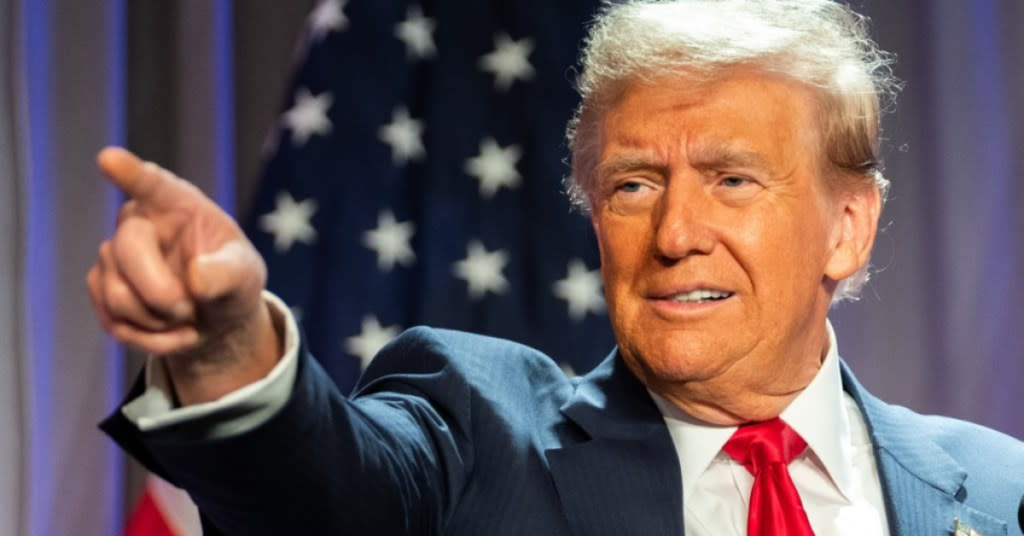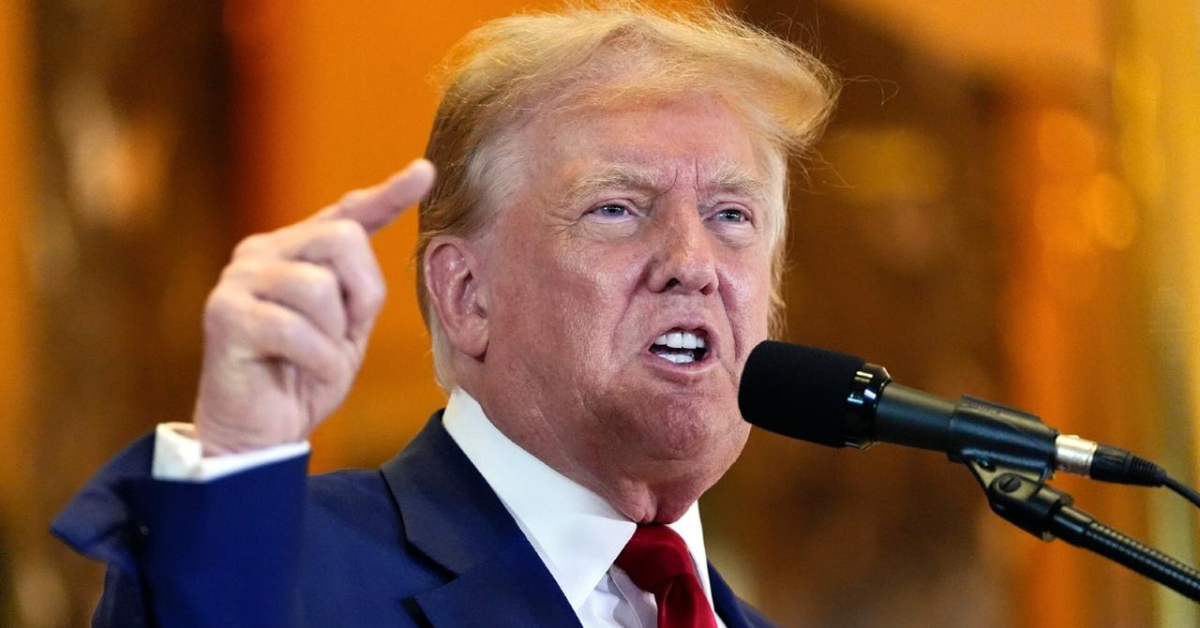President Donald Trump took to social media on Sunday to clarify that there will be no exemptions from his tariffs, after confusion arose regarding electronics. He emphasized that no country would escape the consequences of unfair trade practices, particularly targeting China, which he described as the worst offender. This statement reflects the administration’s stance to continue imposing tough tariffs on China, especially amid ongoing trade tensions.
The controversy began after a notice was released late Friday, suggesting that electronics, including smartphones and laptops, would be excluded from the president’s 125 percent import tax on Chinese goods and the sweeping 10 percent global tariffs. This brief announcement confused consumers and businesses, as it appeared that tech products, which are heavily reliant on Chinese manufacturing, might be spared from the financial burden.
However, Trump quickly dismissed any possibility of a permanent exemption in a post on Truth Social. “NOBODY is getting ‘off the hook’ for the unfair trade balances and non-monetary tariff barriers that other countries, especially China, have used against us,” the president declared. His message was clear: the tariff war would continue, and no country, including China, would escape the consequences.
In the post, Trump clarified that while certain electronics seemed to avoid the 125 percent import tax temporarily, they would still face other tariffs. “These products are subject to the existing 20% fentanyl tariffs, and they are just moving to a different tariff ‘bucket,'” Trump explained. The president also mentioned that the U.S. would soon be taking a closer look at semiconductors and the entire electronics supply chain through a National Security Tariff Investigation.
The confusion regarding the electronics exemption came after a notice indicated that items like smartphones, laptops, hard drives, memory chips, and processors would be excluded from the import taxes. These tech essentials are rarely made in the U.S., and many companies, including Apple and Dell, rely on Chinese factories for production. The notice seemed to offer a brief respite, but it was clear that the exemption was not going to last.
Commerce Secretary Howard Lutnick also weighed in on the issue during an appearance on ABC’s “This Week.” He addressed the questions surrounding the electronic exemptions, confirming that these products would be subject to tariffs as part of a broader strategy targeting the semiconductor sector.
“Those products will be part of the semiconductor sectoral tariffs, which are coming,” Lutnick explained. “They’re going to have a special focused type of tariff to make sure that those products get reshored to the U.S.”
Lutnick’s comments revealed that electronics, while temporarily spared, would still face new tariffs in the coming months. He emphasized that the goal was to encourage domestic production and reduce reliance on overseas manufacturers.

Electronics might have been excluded from the “reciprocal” tariffs for now, but they would soon face new levies as part of a sectoral tariff aimed at reshoring chip manufacturing and other critical tech products to the U.S.
Despite the temporary nature of the exemption, the tariffs could have significant economic consequences. Tech companies that rely on Chinese manufacturing could face higher costs, which could ultimately be passed on to consumers. Many electronics, including smartphones and laptops, are made primarily in China, and relocating production to the U.S. would be a monumental task.
Analysts predict that the costs of reshoring production could significantly increase the price of high-end devices. For example, Bank of America Securities analyst Wamsi Mohan estimated that the iPhone 16 Pro Max could see its price jump by as much as 91%, from $1,199 to around $2,300, if it were manufactured in the U.S.
Apple, one of the biggest companies affected by these tariffs, has already experienced a significant decline in market value due to the uncertainty surrounding the tariffs. In the days following Trump’s tariff announcement, Apple lost $640 billion in market value. The company, which manufactures more than 80% of its products in China, faces an uphill battle to adjust its supply chain to meet the new tariff requirements.
The potential cost increases could also affect consumers. The iPhone, one of the most popular electronics products worldwide, could become significantly more expensive if production moves to the U.S. Higher labor costs in the U.S. and the lack of a skilled workforce for specialized manufacturing tasks are some of the primary obstacles to reshoring tech production.
Apple CEO Tim Cook has previously highlighted the difficulty of finding skilled tooling engineers in the U.S., where such talent is much scarcer compared to China, which boasts a vast pool of qualified workers for this type of work.
In response to the threat of higher tariffs, Apple has taken proactive steps to mitigate the impact. The company chartered flights to transport approximately 1.5 million iPhones from India to the U.S. before the tariffs take effect. This move reflects Apple’s reliance on its global supply chain, which has allowed it to remain competitive and efficient. However, this action also underscores the challenges of quickly shifting production and logistics in response to unexpected tariff changes.
The question remains: will the U.S. be able to successfully reshore electronics manufacturing, or will the tariffs lead to higher prices and strained relationships with key trading partners? While Trump’s administration argues that the tariffs will help revive American manufacturing, experts warn that it may take years to build the necessary infrastructure and workforce to support such a shift.
Trump’s strategy is part of a broader effort to reduce the U.S.’s reliance on foreign goods, particularly from China. The president has long criticized China for its trade practices, and the tariffs are a key component of his administration’s effort to renegotiate trade deals and bring more manufacturing jobs back to the U.S.
As the tariffs continue to evolve, it remains unclear how they will affect global supply chains and the tech industry in particular. What is certain, however, is that the impact of these policies will be felt by both businesses and consumers. For now, electronics companies will have to navigate an uncertain future as they adjust to the changing tariff landscape.
Disclaimer: This article has been meticulously fact-checked by our team to ensure accuracy and uphold transparency. We strive to deliver trustworthy and dependable content to our readers.








